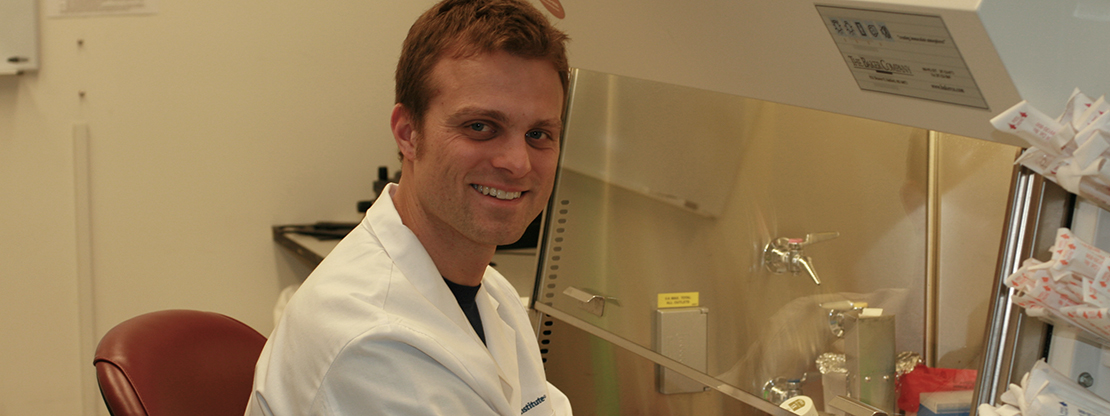Dr. DJ Scholten, Van Andel Institute Graduate School (VAIGS) and Michigan State University (MSU) alumnus, is embarking on a career as a physician-scientist. His profession demands that he traverse two worlds—one focused on the care and health of his patients, the other focused on discovering the diagnostics and therapies of the future. It’s not unusual for scientists and clinicians to collaborate with each other, but it takes a very special kind of person to embrace both disciplines with an equal amount of understanding and zeal.
Scholten received his Ph.D. from the Institute in 2015 and an M.D. from MSU’s College of Human Medicine in May 2017, making him the first candidate to complete the M.D.-Ph.D. program spearheaded by VAIGS, in partnership with MSU. Using the training he received at both institutions, Scholten looks forward to building bridges between the lab and the clinic in order to better serve both the wellbeing of his patients and the future of human health.
When did you first develop an interest in science?
My dad is a physician, so my interest in science began as an interest in human physiology and medicine.
When did you realize that you wanted to work in a science/medical field?
I decided to pursue a career in medicine in college. My decision was a direct result of both volunteer experiences at local hospitals, and from valuable discussions with undergraduate research mentors.
What inspired you to be both a physician and a scientist?
Many present-day medical practices are built upon discoveries that began in the lab. My first passion is patient care, but I also found excitement in being part of scientific discovery that could ultimately benefit the lives of patients.
Why did you choose Van Andel Institute Graduate School to continue your education?
VAIGS is a place where much of the scientific investigation is uniquely focused on a clinical problem. Because of my interest in medicine, the kind of training offered by VAIGS was the obvious choice.
How did your experience at VAIGS inform the way you view working as a physician-scientist?
I now have a better understanding of the barriers that exist between the benchtop and bedside, and the need for effective collaboration between physicians and scientists to benefit patient care.
In your experience, what makes the VAIGS program unique?
The curriculum encourages independence among its student’s scholarly activities. I feel this type of active learning is the best way to grow and develop as a physician or scientist.
How do you think your experience at VAIGS prepared you for a demanding career as a physician-scientist?
Because scientific experimentation doesn’t always go as planned, my experience at VAIGS taught me both perseverance and humility. I feel these skills and others will serve me well in a career as a physician-scientist.
What would you tell someone thinking of applying to VAIGS for graduate school?
The faculty and resources at VAIGS set up students for success in every possible way. The only limiting factor for its students is their own drive and determination.
For information on Van Andel Institute Graduate School, visit vaigs.vai.org.
